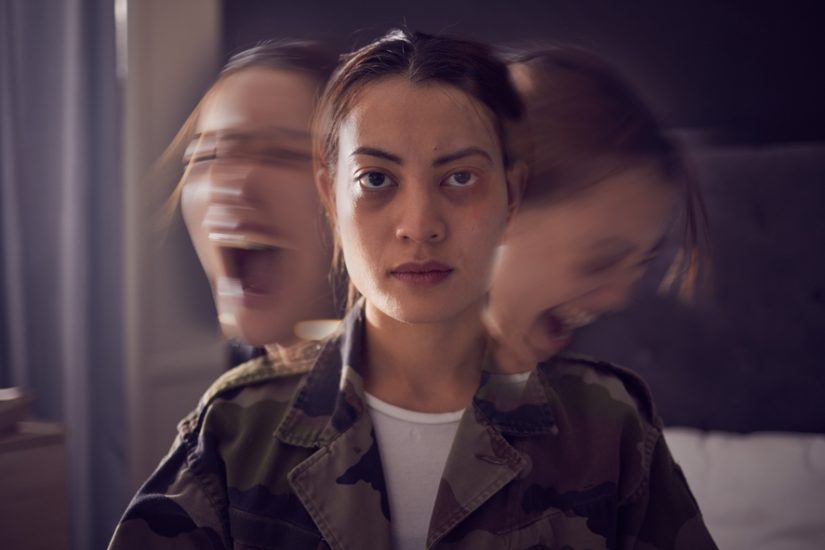- August 1, 2024
- by Shalini Murmu
- Schizophrenia
In our journey through life, mental health often gets overlooked in favor of more visible and immediate concerns, which is completely understandable. In the context of schizophrenia, it is imperative to highlight that paranoid schizophrenia represents a distinct subtype from the more commonly acknowledged form of the disorder.
Paranoid schizophrenia is a subtype of schizophrenia, a severe and chronic mental health disorder that impacts around 20 million individuals globally, as per the World Health Organization. Typically emerging in late adolescence or early adulthood, schizophrenia, though less common than other mental health issues, carries significant weight in its effects on individuals. Research suggests that approximately 0.25% to 0.64% of the world’s population grapples with schizophrenia, with paranoid schizophrenia ranking high among the various subtypes.
Early Signs Of Paranoid Schizophrenia
- Feeling less inclined to engage in social activities, even with loved ones.
- Preferring solitude and withdrawing from social circles.
- Neglecting personal cleanliness and grooming habits.
- Noticing a sudden drop in work or school performance.
- Struggling to organize thoughts or keep up with conversations.
- Speaking in a way that may be hard to follow or jumping between topics frequently.
- Having excessive doubts about others, often without a valid reason.
- Holding onto unfounded beliefs of being singled out, victimized, or part of a conspiracy.
- Persistent sensations of being observed or pursued.
- Feeling constantly on edge and anxious about potential threats.
- Displaying unexplained anger or hostility towards others.
- Experiencing abrupt and intense mood swings.
- Hearing voices that are not present, often with negative or menacing tones.
- Seeing things that others do not perceive.
- Firmly believing in ideas lacking any factual basis, such as possessing extraordinary abilities or being on a specific mission.
- Common delusions encompass grandiose thoughts, feelings of persecution, or beliefs of external control.
- Facing issues with sleeping patterns like insomnia or excessive daytime sleepiness.
- Having distressing nightmares or vivid dreams impacting daily life.
- Displaying unusual body movements or facial expressions.
- Demonstrating either a lack of movement or purposeless excessive movements, known as catatonia.
Distinguishing Paranoid Schizophrenia From Other Types Of Schizophrenia
Paranoid schizophrenia stands out from other forms of schizophrenia due to its unique symptoms and how it affects individuals. Schizophrenia covers a vast array of symptoms and severities, but paranoid schizophrenia is primarily identified by enduring delusions and auditory hallucinations. People with this subtype often believe in delusions of persecution or grandeur, thinking they are being targeted or have exceptional abilities. These symptoms of paranoid schizophrenia can be very distressing and isolating, yet the cognitive functions and emotional responses of those affected may remain relatively intact compared to other subtypes.
On the other side, disorganized schizophrenia entails severe disarray in thoughts, speech, and behavior, resulting in fragmented thinking and incoherence. Catatonic schizophrenia is marked by significant disturbances in movement, ranging from extreme stillness to excessive and purposeless activity. Undifferentiated schizophrenia presents a combination of symptoms from various subtypes, while residual schizophrenia occurs when an individual has a history of the disorder but currently shows fewer symptoms.
Living with paranoid schizophrenia can be a harrowing experience. The constant fear and anxiety caused by delusions of persecution or grandeur make everyday life tough. People may feel like they are constantly being watched or believe that others are conspiring against them. This heightened level of vigilance and mistrust leads to withdrawing from social interactions and feeling isolated, worsening feelings of loneliness and fear. The auditory hallucinations, often critical or threatening, create additional distress, making it hard for the individual to distinguish between reality and the delusional world.
For individuals dealing with paranoid schizophrenia, the journey can be very isolating and draining. The initial signs of schizophrenia may start off subtle but gradually become more intense. It is crucial to recognize these early signs for timely intervention.
Impact On Individuals And Their Families
Suspiciousness and distrust play a pivotal role in paranoid schizophrenia, with paranoia being a prominent aspect of this mental disorder. Suspiciousness goes beyond normal caution to an extreme level of mistrust, perceiving even innocent actions as malevolent or hostile gestures. This constant state of vigilance transcends a mere emotion, becoming a deeply rooted conviction that others are plotting against them behind the scenes.
Paranoia, an amplified version of suspicion, materializes as persecutory delusions. Those afflicted with paranoid schizophrenia may harbor beliefs of being under surveillance, followed, or targeted by influential forces or persons. These delusions persist despite contradictory evidence and remain impervious to logical arguments or reassurances from others.
The impact on families and friends can be equally profound. Supporting a family member with paranoid schizophrenia entails navigating a complex emotional terrain. Loved ones may grapple with feelings of powerlessness and exasperation as they strive to comprehend and cope with the symptoms. The erratic conduct and extreme mistrust can strain familial bonds, leading to social seclusion for both the individual and their loved ones. The practical hurdles of caregiving, ensuring adherence to medication, and seeking appropriate interventions like residential care for schizophrenia can be overwhelming. The emotional strain on families underscores the crucial need for comprehensive support networks and mental health services.
Why It Happens?
The intricate reasons behind the emergence of suspiciousness and paranoia are intricate and multifaceted, involving a complex interplay of various factors. It is speculated that these symptoms come from a fusion of genetic predispositions, biological influences, and environmental triggers. The role of biochemical factors, specifically the presence of imbalances in neurotransmitters such as dopamine, is critical in understanding the emergence of these symptoms. Disturbances in brain structure and function, such as disruptions in the dopamine pathways, are notable factors.
Genetics plays a crucial role, particularly for individuals with a family history of schizophrenia who are highly susceptible to developing the disorder. Moreover, environmental stressors, including experiences of trauma or major life changes, have the potential to either trigger the onset of symptoms or worsen existing ones, underscoring the intricate relationship between biological predispositions and external influences.
These environmental stressors can act as catalysts for the expression of symptoms, shedding light on the dynamic nature of how paranoid schizophrenia unfolds. Understanding these multifaceted origins is crucial for devising effective treatment strategies and interventions that address the diverse elements influencing the condition.
How To Begin The Recovery Journey?
Embarking on the journey towards recovery from paranoid schizophrenia involves navigating through multiple essential stages. Initiating the critical step of early intervention is essential, as identifying and addressing the initial signs of schizophrenia can greatly improve the overall prognosis and results. Collaborating with professional assistance is crucial, as engaging with a mental health expert can result in a comprehensive assessment and the initiation of suitable therapeutic interventions.
The treatment modalities for paranoid schizophrenia commonly entail a blend of pharmaceutical interventions and psychotherapeutic approaches. Medications such as lumateperone, classified as antipsychotic agents, play a pivotal role in symptom management by modulating neurotransmitter levels and alleviating delusions and hallucinations. Psychotherapy, particularly cognitive-behavioral therapy (CBT), is a valuable means to challenge and reframe delusional beliefs while enhancing their coping strategies.
Inpatient Treatment
When It’s Needed:
- Severe Symptoms: Inpatient treatment is often required for those going through acute or minor episodes of paranoia, hallucinations, or delusions that make it difficult for them to function safely in daily life.
- Risk Management: If the individual poses a risk to themselves or others, or if they are unable to care for themselves due to the severity of their symptoms, inpatient care provides a controlled environment where their safety can be closely monitored.
- Initial Stabilization: It is typically used to stabilize the individual’s condition with medications, such as antipsychotics like lumateperone, and intensive therapy in a secure setting.
Benefits:
- Structured Environment: Inpatient facilities offer a structured environment with 24/7 medical supervision, which can be crucial during acute episodes.
- Comprehensive Care: Access to immediate psychiatric care, medication management, and therapeutic support helps stabilize symptoms and develop an initial treatment plan.
Outpatient Treatment
When It’s Appropriate:
- Stable Condition: Those who have symptoms that can be managed well and who do not require constant supervision, outpatient treatment is a viable option.
- Ongoing Support: Outpatient care provides continued support through regular visits to mental health professionals, including psychiatrists and therapists, while allowing people to maintain their everyday lives.
Benefits:
- Flexibility: Outpatient treatment offers more flexibility, allowing you to live at home, continue with daily activities, and maintain social and occupational responsibilities.
- Long-Term Management: It focuses on the long-term management of symptoms, including regular medication adjustments, psychotherapy, and support services. This approach is often used for ongoing treatment after an initial inpatient stay or for less severe cases.
The management of paranoid schizophrenia often requires a combination of inpatient and outpatient interventions. You can choose to begin with inpatient care in order to address acute symptoms before transitioning to outpatient support for ongoing management. This integrated method ensures thorough care for immediate necessities as well as sustained stability in the long run.
Residential Therapy For Paranoia-Induced Schizophrenia
Residential therapy offers an immersive and nurturing space for comprehensive treatment spanning an extended duration. Tailored for individuals seeking more than outpatient care, yet not necessitating the intensity of hospitalization, this option holds promise.
Benefits:
- Comprehensive and Continuous Care
Within residential facilities, round-the-clock care ensures a seamless flow of support for individuals. From medication management to therapeutic sessions and daily oversight, this all-encompassing care is vital for navigating the intricate manifestations of paranoid schizophrenia.
- Structured Environment
Within residential treatment centers, you can benefit with a routine that can be grounding for those grappling with paranoid schizophrenia. A regular schedule for meals, therapy, and leisure activities can bring a comforting environment of predictability and security.
- Intensive Therapy
They give a plethora of therapeutic modalities offered in residential settings, ranging from individual and group therapy to specialized techniques like cognitive-behavioral therapy (CBT). Tailored to combat the unique hurdles of paranoid schizophrenia, these interventions aid in managing delusions and alleviating paranoia.
- Holistic Approach
With a comprehensive approach to recovery, residential facilities go beyond psychiatric symptoms to address physical, emotional, and social well-being. Programs encompass nutritional guidance, physical activities, mindfulness exercises, and artistic expression, nurturing holistic wellness.
- Peer Support
You also get an opportunity to build bonds within a community of individuals sharing similar journeys, fostering a deep sense of solace and understanding. The companionship and mutual assistance commonly found in residential environments reduce isolation, promoting a feeling of togetherness and belonging.
- Skill Building
Prioritizing skill development, residential programs equip individuals with tools to manage symptoms and enhance their quality of life. From honing social aptitudes to vocational training and fostering independent living skills, the aim is to instill empowerment for a fulfilling post-treatment life.
- Family Involvement
Many residential centers integrate families into the therapeutic process through counseling sessions and educational initiatives. Empowering families with knowledge about paranoid schizophrenia and effective support strategies is pivotal for nurturing a supportive home environment post-treatment.
- Focus on Long-Term Recovery
Envisioned with a sustained recovery in sight, residential therapy enables individuals to deeply engage in their healing journey, fostering coping mechanisms and a sturdy foundation for enduring wellness. The skills and insights garnered during residential treatment pave the way for lasting mental well-being, guarding against relapses.
For many, residential treatment becomes not just a step in their recovery, but a transformative experience that paves the way for a brighter, more stable future.
Want To Start Your Recovery Journey?
Connect with North America Behavioral Health Services for guidance and resources for your holistic mental health recovery. Our dedicated team is here to guide you every step of the way, offering personalized care and a compassionate approach to help you regain control and find lasting peace. Take the first step towards a brighter future with us.
















